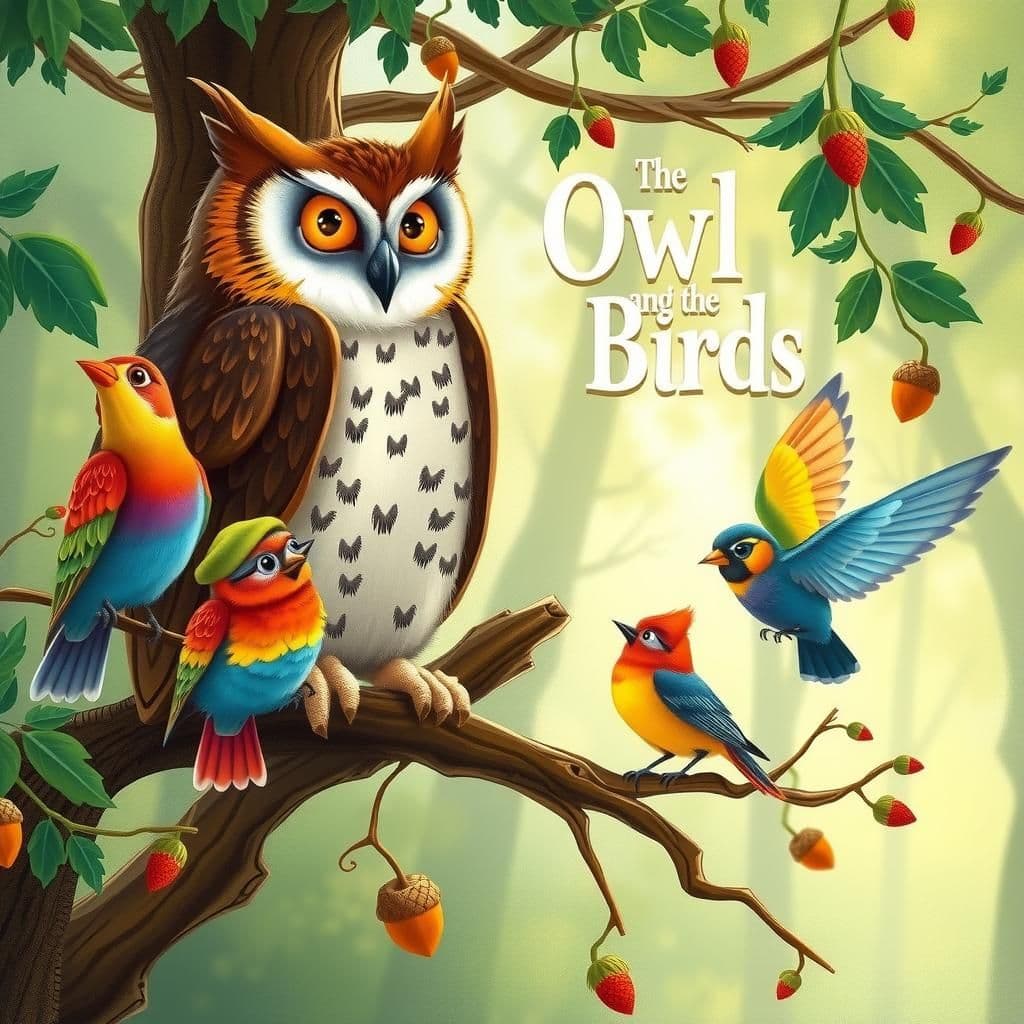The Wolf and the Feeding Goat
In "The Wolf and the Feeding Goat," a cunning Wolf attempts to lure a Goat down from her safe perch by boasting about the abundant, albeit misleading, food below. The clever Goat counters his claims by referencing the failed circus-poster crop, highlighting the Wolf's deceptive nature. This captivating moral story serves as an educational reminder of the importance of discernment in the face of temptation and false promises.

Reveal Moral
"The moral of the story is that it is better to remain in a challenging but safe situation than to be lured by superficial allurements that may lead to harm."
You May Also Like

The Oxen and the Butchers
In "The Oxen and the Butchers," a group of Oxen, seeking to overthrow the Butchers who kill them, are cautioned by an elder Ox about the potential consequences of their actions. He argues that while the Butchers do cause them suffering, their skilled butchery ensures a more humane death than the brutality of unskilled operators, highlighting a moral lesson about the dangers of hastily exchanging one evil for another. This captivating moral story serves as a reminder that not all changes lead to better outcomes, making it a meaningful addition to any collection of short stories with moral lessons for adults.

The Owl and the Birds
In "The Owl and the Birds," a wise owl shares her knowledge through moral-based storytelling, warning the birds to uproot sprouting acorns and flax seeds that would bring danger from mistletoe and hunters. Dismissing her counsel as madness, the birds later regret their disbelief when her predictions come true, realizing the owl's wisdom echoes the lessons found in classic moral stories. Now, they revere her in silence, reflecting on their past folly and the importance of heeding wise advice.

The Jackdaw and the Doves
In this famous moral story, a Jackdaw paints himself white to fit in with a group of Doves and enjoy their abundant food. However, when he inadvertently reveals his true identity by chattering, the Doves reject him, and he finds himself unwelcome among his own kind as well. This quick moral story illustrates that by trying to belong to two groups, he ultimately achieved neither, emphasizing the importance of authenticity and acceptance.